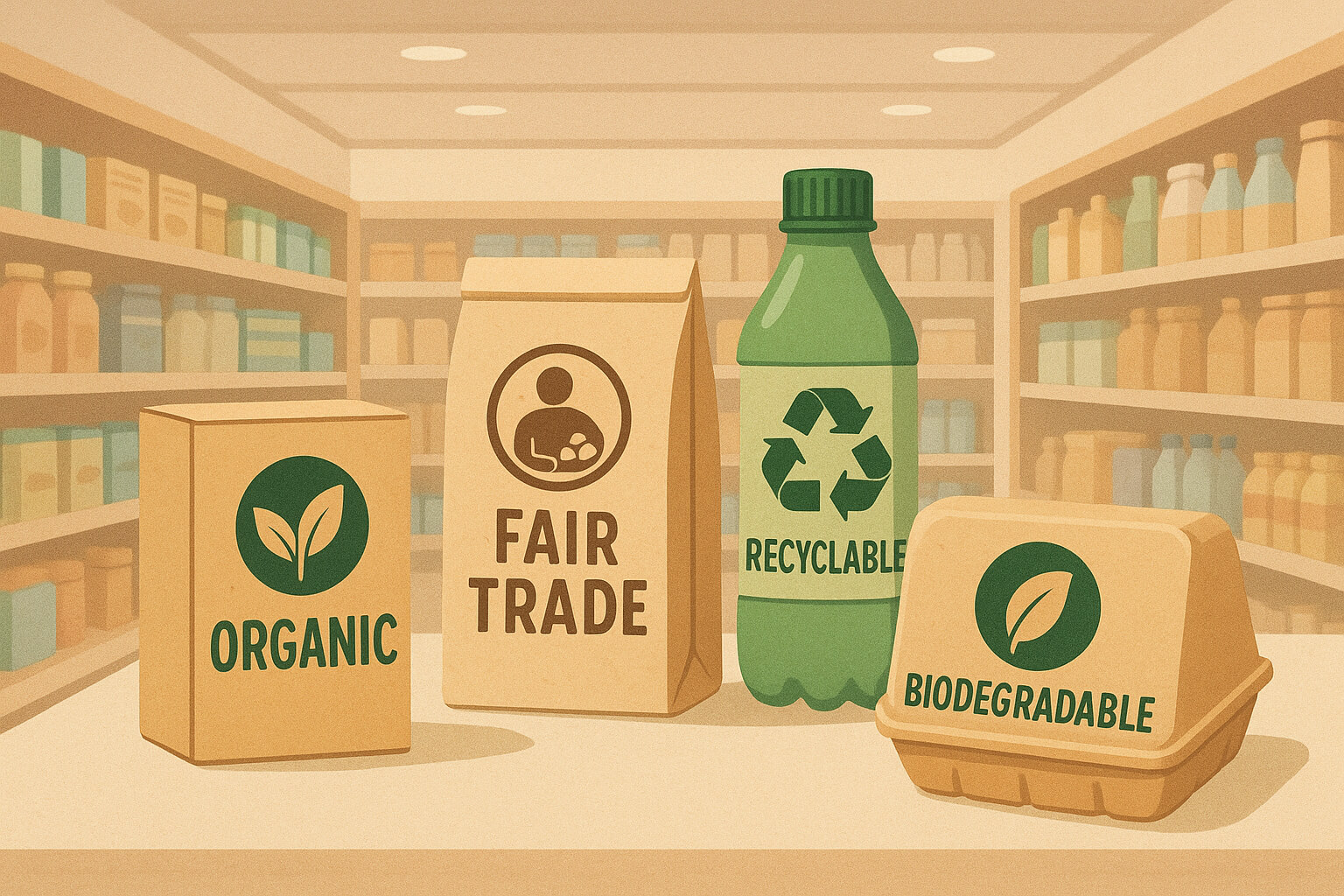September 07, 2025

Walk down the aisle of any grocery store or scroll through your favorite online shop, and you’re bound to see terms like “organic,” “natural,” “fair trade,” or “biodegradable.” These labels aim to appeal to a growing wave of conscious consumers who care about how products affect the planet and the people behind them.
But here’s the challenge: not all eco-labels are created equal. Some are backed by strict environmental standards, while others are little more than marketing tools, a practice known as greenwashing.
So how do you know which products are genuinely sustainable—and which ones are just pretending?
This guide will help you understand the most common eco-friendly labels, avoid misleading claims, and make truly responsible choices that support a greener future.
Eco-labels are more than just packaging buzzwords. They represent a commitment to ethical sourcing, environmental protection, and transparency in a global market often dominated by profit-first motives.
When done right, they:
However, greenwashing—when companies mislead customers into thinking their products are more sustainable than they really are—can erode trust and stall progress.
Did You Know? A 2021 study by the European Commission found that 42% of green claims were exaggerated, false, or deceptive.
Understanding what each label signifies—and who certifies it—is essential to making informed, eco-conscious decisions.
Bonus: Organic farming typically promotes soil health, biodiversity, and water conservation.
Learn how sustainable habits start young in The Importance of Early Childhood Education.
Impact: Buying fair trade means supporting ethical labor and helping farmers break cycles of poverty.
Read more on economic empowerment in The Role of Women’s Empowerment in Poverty Reduction.
Explore further: The Science of Recycling & Plastic Pollution
Impact: Energy Star appliances use 10–50% less energy, saving you money and reducing CO₂ emissions.
Dig deeper into offsets here: Understanding Carbon Offsetting: Is It Effective?
Impact: Helps combat deforestation and promotes forest restoration efforts.
Not every green-looking logo or claim means the product is truly sustainable.
Stay updated on sustainable living in Sustainable Living: Small Changes, Big Impact
When we understand what eco-labels truly represent, we:
Every purchase is a vote for the kind of world we want—whether it’s local, organic produce, fair trade coffee, or plastic-free packaging.
Next time you shop, take a moment to pause. Don’t just go for the “greenest-looking” product—dig deeper. Ask questions like:
Remember: Sustainable shopping isn’t about being perfect—it’s about being intentional.
Together, informed consumers have the power to transform markets, influence companies, and protect the planet.
Stay up to date with the latest tips, expert insights, product reviews, and step-by-step guides to help you grow, create, and succeed—no matter your industry or passion.